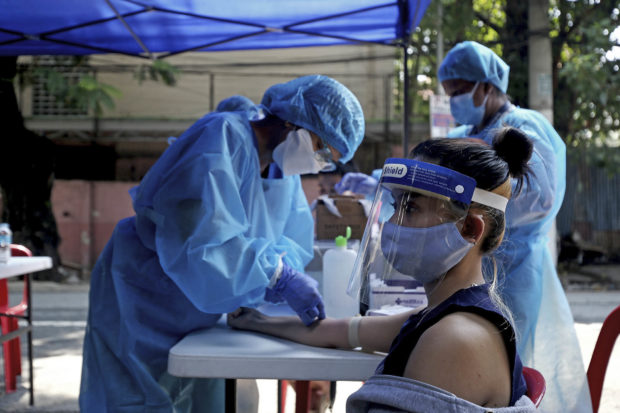Forced isolation policy may misfire if not explained – DOH

BETTER CARE Health Undersecretary Maria Rosario Vergeire says explaining to the public the benefits of mandatory isolation for mild and asymptomatic COVID-19 cases will make the patients understand that they will get better care in the quarantines. —RICHARD A. REYES
MANILA, Philippines — The Department of Health (DOH) on Wednesday acknowledged that the government’s forced isolation policy for COVID-19 patients could work against its response to the coronavirus pandemic as it could cause people to conceal their health condition or refuse to be tested.
But Health Undersecretary Maria Rosario Vergeire said the matter could be dealt with by explaining to the public the benefits of the policy.
“First of all, you don’t have to be afraid. You don’t have to hide your symptoms. If you go to a temporary treatment and monitoring facility, you will be cared for there. You will be better monitored there, and you can prevent infecting your family,” Vergeire said in an online news briefing.
Patients stay in the isolation center for 14 days and go home to their families afterward, she said.
Self-isolation banned
On Sept. 24, the Inter-Agency Task Force for the Management of Emerging Infectious Diseases, the temporary government body overseeing the administration’s coronavirus response, issued a resolution banning self-isolation and requiring even mild and asymptomatic COVID-19 patients to be quarantined.
Article continues after this advertisementExceptions are patients with other illnesses who have the capacity to home isolate and who live in places where the local governments do not have adequate quarantine centers.
Article continues after this advertisementBut a multisectoral group appealed to the task force on Tuesday to allow COVID-19 patients without other illnesses and who have the capacity to self-isolate to be exempted from the forced quarantine rule.
According to the Healthcare Professionals Alliance Against COVID-19, the policy would encourage hiding of information, which would work against the government’s contact-tracing efforts.
Vergeire said the group’s concern was a possibility, and that it was discussed during a task force meeting.
“The experts were there and they [said this was] one of the disadvantages or something that might happen [if we implemented] this. But this is needed, and we just have to explain it to the people,” she said.
Minimum health standards
Vergeire also said the DOH was not opposed to reopening the economy, as long as the people adhered to the minimum health standards.
“We need to learn to live with the virus,” she said, stressing that if the people would follow health rules, “we can open any sector” of the economy.
On Wednesday, the DOH reported 2,426 additional coronavirus infections, pushing the overall number of COVID-19 cases in the country to 311,694.
Metro Manila accounted for most of the new cases identified by 136 accredited laboratories, 887, followed by Cavite (201), Rizal (147), Negros Occidental (115) and Batangas (99).
The DOH said 585 more patients had recovered, raising the total number of COVID-19 survivors to 253,488. The death toll, however, rose to 5,504 with the deaths of 58 more patients.
That left the country with 52,702 active cases, of which 86.4 percent were mild, 9.0 percent asymptomatic, 1.4 percent severe, and 3.2 percent critical.
For more news about the novel coronavirus click here.
What you need to know about Coronavirus.
For more information on COVID-19, call the DOH Hotline: (02) 86517800 local 1149/1150.
The Inquirer Foundation supports our healthcare frontliners and is still accepting cash donations to be deposited at Banco de Oro (BDO) current account #007960018860 or donate through PayMaya using this link.